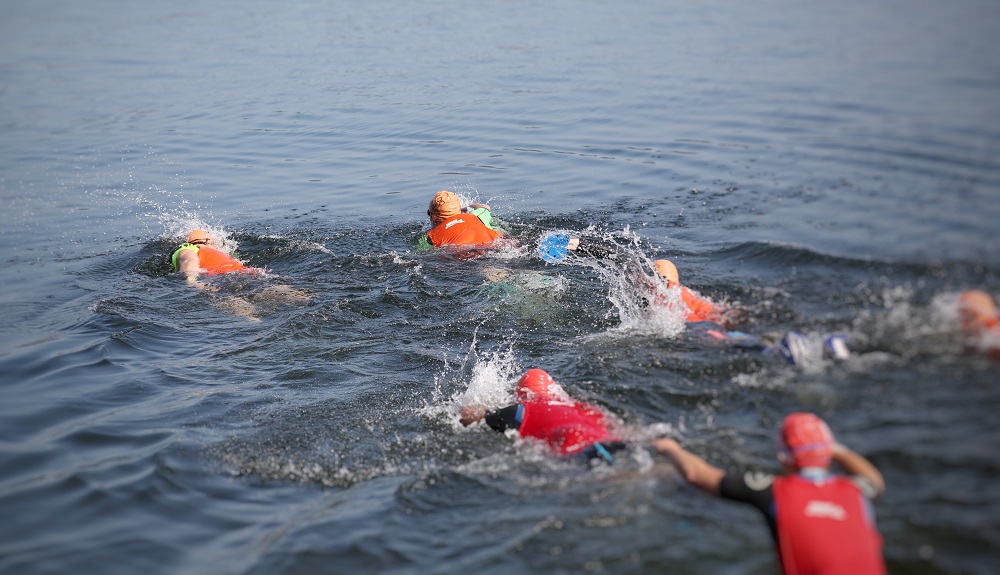How to stay motivated on big challenges
Big physical challenges rarely run smoothly from beginning to end. However fit and well prepared you are, there are times when your body protests. I remember one long swimming race where I started to feel nauseous and weak before I’d even reached the halfway point. Or maybe something outside of your control changes your plans: an enforced route change or a deterioration in the weather perhaps. The question is, how do you deal with these setbacks?
While you can’t predict when things will go wrong, or what would happen, there are a few strategies that might help you cope.
Give up
Giving up has negative connotations, but in some cases, pulling out is the best option. For example, is there a high risk of long-term or permanent damage to your body if you continue? Is your life in danger? Will attempting to go on ruin your prospects for a future, more important event you’ve got planned? This is the time to review your objectives for the challenge: was it to push your limits or to have an enjoyable day out? I spoke briefly to one person I saw pulling out of an event and she simply said: “it’s just not fun anymore.” It’s definitely worth mentally comparing the downsides of continuing with the potential reward of finishing. If it doesn’t stack up, it’s time to stop.
Quitting sounds easy, but it isn’t. Culturally we put a lot of value on overcoming difficulties and pushing on. We use so-called motivational phrases like “paid is temporary: glory lasts forever.” You may therefore have regrets about quitting or feel ashamed by it. You shouldn’t. Go easy on yourself. I once ended up in hospital after I pushed on in an event when I should have stopped. It was foolish, not heroic.
Giving up is a good option to consider first. But if you rule it out, you have to find the motivation to continue. Here’s how.
Remind yourself that how you feel will change
Your dip in mood may be caused by a range of things. Perhaps you started too fast and now just need a spell at a slower pace to recover. Maybe you’ve over-heated or not eaten enough. It’s not easy to snap out of a bad mood or an energy slump, but you may find that by making a few changes and pushing on, the way you feel gradually improves.

Revise your objectives
When things go against you, revising your objectives can help you find the motivation to continue. In the swimming race I mentioned above, I’d originally hoped for a top-five finish and a sub-6 hour time. The realisation that neither of these things would happen was a big blow to my incentive to continue, especially given how feeble I felt. I changed my objectives to (1) finishing, (2) keeping my swim stroke efficient and relaxed and (3) managing my nutrition to minimise nausea. After a while, the swim did become easier and more enjoyable, and I finished. In swimrun races, I’ve experienced swim cancellations on a couple of occasions. As a better swimmer than runner, this always disadvantages me against the runners in the race. Last time it happened, I told myself it was an opportunity to practice running difficult trails on tired legs and hopefully improve my running.
Focus on the positives
One of my motivations to take on physical challenges is that they often take you through beautiful places. If you’re hell-bent on racing, it’s easy to overlook how lucky and privileged you are. While you’re struggling physically, take a moment to look around and enjoy the views – and make a point to truly savour them too. Remember that you are probably doing something that isn’t accessible to everyone, whether for fitness or financial reasons.
Stay in the moment
While imaging about how you might feel when you finish can be a good motivator, it’s not a good thought to dwell on if it also makes think about what you’ve still got to do to get there. A useful trick to stay in the moment is to focus on your technique. If I’m running, I might focus on relaxing my shoulders and treading lightly on the ground. While swimming, I’ll try to get into a steady rhythm. Having a song or a mantra in my head helps. I like to repeat “relax – stretch – breathe” while swimming for example.
Smile
Smiling is known to lift your mood and can lower your perceived effort level. It’s tricky while swimming but even just thinking about it can help. I must admit that in pictures of me running, I usually look like I’m grimacing rather than smiling, but I do try.
Eat something
This one needs to be handled with caution as overeating on an endurance challenge can result in stomach issues. However, it’s also easy to under-eat. While energy products are a practical way to replace carbohydrates, they can get sickly, and they are far from satisfying. Having something more substantial can settle both your stomach and your mood, even if they aren’t as energy dense as gels. I like bars of dried fruit and malt loaf, which are both easy to carry.
Stop looking at your watch
I once did a 10km running race on a two-lap course. At the halfway point, I made the mistake of glancing at my watch and spotted that my pace was significantly slower than what I’d expected going into the event. It was so demotivating that my legs stopped running before I could refocus. I now mostly race without a watch. If I do wear it, I only look at it when I’ve finished. There are so many good reasons to do events, and to complete them, but it’s easy to let our sense of success or failure be determined by how long they take us.
Suck it up
You knew this thing was going to be hard when you signed up for it – at least you should have done. Remind yourself of this. It’s why you’re doing something that not anyone could do. Sometimes the tougher it is, the more satisfying it is to finish. Embrace the discomfort. It’s what you’ve trained for.
Finally, always remember we do these things because we want to. We like the life affirmation buzz you get from testing yourself. But also remind yourself that in most cases, the importance of these challenges begins and ends with you. Whether you stop or continue will make no difference to the world. Make sure, therefore, that you are getting what you want out of your challenges and not putting too much into them.
Images by (c) Katia Vastiau
